
Washington DC Police Commanded to Leave Photographers Alone
One of the reasons photographers raise a fuss when their rights are infringed upon is to create awareness in …

One of the reasons photographers raise a fuss when their rights are infringed upon is to create awareness in …

ASMP Releases is a free model and property release app for iOS by …

Professor and self-proclaimed cyborg Steve Mann created an eye and memory-aid device he calls the EyeTap Digital Glass. The EyeTap, worn by Mann above on the left, is a wearable device that is similar to Google Eye, pictured right, but he's been making them at home since the 1980s. The goal of his project is to use images to aid memory, or even to augment the memories of people with Alzheimer's Disease or who simply want to preserve their memories more permanently. However, a recent misunderstanding over Mann's technology allegedly caused a confrontation between Mann and several employees at a Paris McDonald's restaurant.

The University of California has agreed to dish out a $162,500 settlement to David Morse, a 43-year-old photographer who …

The UK government issued an updated copyright policy statement today that's intended to modernize copyright law in a digital era. But here's where those traditionally protected under copyright -- authors, poets, artists, photographers and so forth -- begin to cringe: sweeping definitions of "orphan works" and Extended Collective Licensing could allow companies to buy chunks of content without compensating original authors.

Earlier today Amateur Photographer reported that the Strathclyde Partnership for Transport (SPT) in Glasgow, Scotland is set to impose a series of bylaws for the cities transport, including a ban in section 12.1 which would prohibit riders from "take[ing] photographs, or make[ing] video, audio or visual recordings on any part of the subway." In fact, the only way around the ban would be to get express written permission from the SPT and show it to any officer that may request to see it.
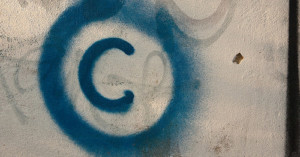
John Herrman over at BuzzFeed has written up an interesting piece on how and why "grabby" terms of service have become ubiquitous in the online world of social media:
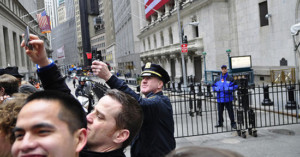
After being arrested on October 1, 2007 for using his cell phone to film officers making an arrest, Boston …

Photo-sharing site Pinterest, the new darling of social media, has a copyright infringement …

This looks like a screenshot of a satirical article by The Onion, but …

It wasn’t too long ago that Kodak filed multiple patent infringement lawsuits against Apple in a scramble …

Here’s a disturbing video called “If You See Something, Film Something” that shows why it’s important that citizens have …

A UK photographer who goes by the moniker Hamstify was documenting his town …

Kodak might be on its deathbed, but that’s not stopping the company from launching a new volley …

Wedding photographer Joe Simon learned about copyright the hard way recently after his video of Tony Romo’s wedding went …

16-year-old photographer Jules Mattsson has won a settlement from the London Metropolitan Police after being stopped and …

Three years ago, an Illinois man named Michael Allison was arrested for videotaping …

It's not just big tech companies engaged in patent wars: Luma Labs has discontinued their Luma Loop and Luma LoopIt camera straps after Black Rapid was awarded a patent for camera slings with sliding connections on November 1st.

It's not uncommon to hear stories of wedding photographers getting sued by unsatisfied clients, but one lawsuit currently underway in New York is causing quite a stir. Todd Remis (pictured on right) of Manhattan is suing 65-year-old studio H & H Photographers (on left), claiming that the photographers had missed the final 15 minutes of the wedding that included the last dance and bouquet toss.
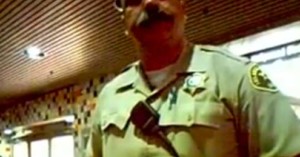
The ACLU of Southern California has filed a lawsuit against the Los Angeles County Sheriff’s Department and several of …

Update: Apparently this isn’t something ordinary photographers need to worry about. See below. The Washington Post …
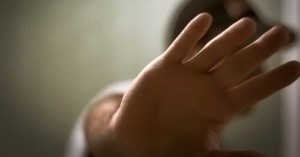
Photography business analyst Dan Heller has written …

A 19-year-old man in the UK has been sentenced to two months in prison for snapping a courtroom photo.

If a stranger suddenly grabs your camera and takes a photograph, who owns the copyright to that photograph? Photographer …

The debate over David LaChapelle copyright infringement lawsuit against Rhianna rages on -- lawyer John William Nelson has written an article on why copyright should extend only to the literal copying of a photograph and not the elements within the photo.

Freelance news photographer Phil Datz was recording the conclusion of a police chase from the opposite sidewalk last Friday …
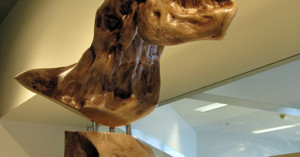
Here’s an update to the whole monkey copyright story that’s been swirling around the blogosphere as of …

A little update to the recent brouhaha over Google+’s Terms of Service: …
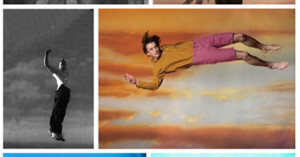
At what point does inspiration turn into plagiarism? That's the question that popped up last year when Rhianna was sued by David LaChapelle over scenes found in one of her music videos, and it's the same issue with a lawsuit recently filed by photographer Janine Gordon against photographer Ryan McGinley. Gordon claims that 150 of McGinley's images -- including some used for a Levi's ad campaign -- are "substantially based" on her photos. In the three pairs of disputed images shown above, the ones on the left are by Gordon and the ones on the right by McGinley.
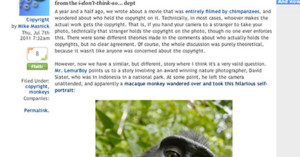
Just as the monkey photography story was dying down, a new twist emerges: on Monday tech blog TechDirt received an email from Caters News, the agency representing wildlife photographer David Slater, whose camera was hijacked by a monkey and used to shoot a number of self-portraits.

When we shared the story of how monkeys hijacked photographer David Slater's camera and unwittingly snapped some self-portraits, we asked the question "doesn’t the monkey technically own the rights to the images?" Techdirt, a blog that often highlights copyright issues, went one step further and dedicated a whole post to that question.
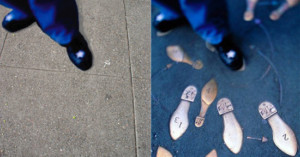
The legal battle between photographer Mike Hipple and sculptor Jack Mackie over a photo of Mackie’s public …

Turns out turning photographs into stencils isn’t transformative enough to be defended as “fair use”. In a case that …

Tennessee Governor Bill Haslam signed a new law last week that makes it …

29-year-old student and avid photographer Christopher Fussell was taking photographs of trains at a Baltimore station back in March …

Libertarian magazine Reason created this video about the erosion of photographers’ rights in …

Things aren’t going very well for Sigma these days — just days after the world balked at …

Photography lovers in Canada may soon be caught in the crossfire of the music industry’s fight against piracy. The …
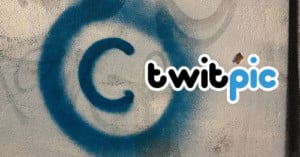
Since launching in 2008, TwitPic has been at the center of quite a few copyright controversies and legal battles, especially when disasters strike and Twitter users are able to publish photos of things that are happening well before major news outlets. Back in early 2010 photographer Daniel Morel had an iconic photograph taken during the Haiti earthquake widely republished in newspapers across the world without his permission after he uploaded the photos to TwitPic, then later that year Twitter's decision to display TwitPic photos directly on their website caused a brouhaha. TwitPic has finally decided to update their Terms of Service to make it clear that users of the service retain the copyright of everything they upload.

President Obama announced last week that photographs of Osama bin Laden's body would not be released to the public due to concerns that it would incite violence and hatred, but a number of news agencies and advocacy groups are attempting to have them released using a Freedom of Information Act request. The Associated Press is one of the agencies that filed a FOIA request (they're also requesting that video of the raid be released), and the US government has 20 days to respond.